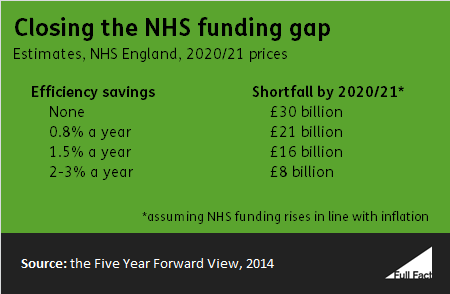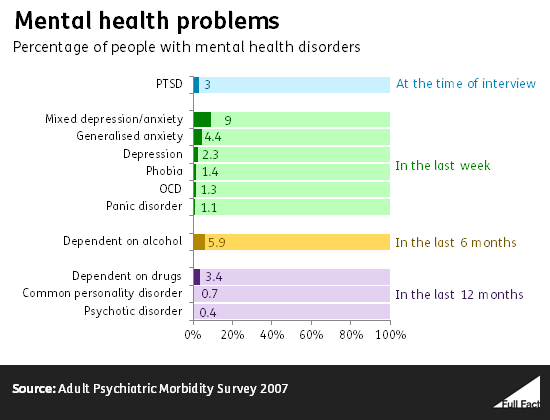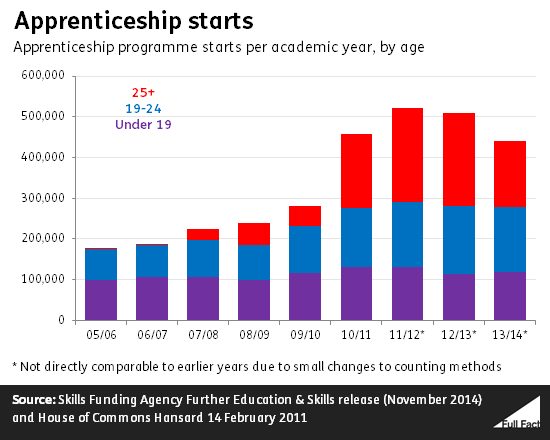Key claims from the Liberal Democrat manifesto launch
The Liberal Democrats have launched their election manifesto. We've checked their claims on the economy, health spending, mental health and apprenticeships, taken from Nick Clegg's speech at the manifesto launch, and from the manifesto itself.
"The deficit is now half what it was when we took office in 2010."—manifesto, page 17
- The budget deficit has been halved as a proportion of the size of the economy (GDP).
- It has fallen by around 40% in cash terms from its peak in 2009/10.
- Back in 2010, forecasts indicated that the structural deficit would be eliminated by 2014-15 (excluding investment spending). Growth was weaker than expected, and tax revenues weren't as high as was hoped.
- Current forecasts for this measure suggest we're on course for a surplus by 2017-18.
- There are a number of alternative ways to measure the deficit.
"The fastest growing economy in the western world"—Clegg's speech
- This is too broad a reference. Last year Britain was the fastest growing 'major advanced economy' - that refers to a select few large economies - but not the fastest growing in the western world.
- Britain grew 2.6% over 2014, faster than any other G7 economy.
- This isn't the same as being the fastest growing economy in the Western world: Ireland, for example, grew 4.8%.
"Quality healthcare for all with an extra £8 billion for the NHS"—Clegg's speech and manifesto front page
- This is the Liberal Democrats' pledge on future funding for the NHS. If the health service in England makes no efficiency savings and funding rises only with inflation, the estimated funding gap will be at £30 billion by 2020/21.
- If it makes savings of 2-3% that gap falls to £8 billion.
- Some have questioned how likely it is for this more optimistic savings target to be achieved.
- If the NHS doesn't make £22 billion in savings then the next government will need to pledge more than £8 billion in order to close the funding gap, or the quality or quantity of services will be at risk.
"One in four of our citizens suffer from mental health issues at some point in their lives"—Clegg's speech
- This widely-quoted figure doesn't refer to 'lifetime' mental health issues, although it is often misinterpreted in this way.
- A 2007 survey found 23% of people in England had a mental illness, measured across a variety of time frames. A third of these—7.2% of people surveyed—had more than one. This wasn't the original source of the 1 in 4 figure, which goes back to the 1980s.
- Because each condition included in the 23% figure has a different time frame it's not meaningful to use the data to say 23% are ill in every year, or in any other time period. But the findings do suggest that the number suffering over a lifetime will be more than one in four.
- Anxiety and depression, for instance, were measured by identifying symptoms people demonstrated in the past week. Alcohol dependence refers to the past six months. Meanwhile drug dependence and eating disorders were measured based on the past year.
Join 72,953 people who trust us to check the facts
Sign up to get weekly updates on politics, immigration, health and more.
Subscribe to weekly email newsletters from Full Fact for updates on politics, immigration, health and more. Our fact checks are free to read but not to produce, so you will also get occasional emails about fundraising and other ways you can help. You can unsubscribe at any time. For more information about how we use your data see our Privacy Policy.
"[we've created] two million apprenticeships"—Clegg's speech and manifesto, page 22
- Over 2 million apprenticeships have been started since May 2010, 177,000 more than the government's target of 2 million (when you include the estimated figures for the 2014/15 academic year).
- This incorporates a small fall in the number from 2011/12 to 2012/13. That fall appears to have continued more substantially in 2013/14.
- Over 25s have seen the biggest rise, while the number of under 19s starting apprenticeships each year has stayed relatively flat.
- Experts are divided as to whether the reforms to apprenticeships that the Coalition government has introduced—such as introducing a minimum length of a year—have gone too far or not far enough.
- The National Audit Office has raised concerns about the impact of this reform (in the context of reduced funding) on take up of apprenticeships by 16 to 18 year olds.
- Meanwhile a Sutton Trust report in 2013 argued that a year long apprenticeship isn't enough. It said the majority of apprenticeships have been "below the level 3 standard required for most technician or paraprofessional jobs", arguing that instead "three year, high standard apprenticeships must become the norm".



